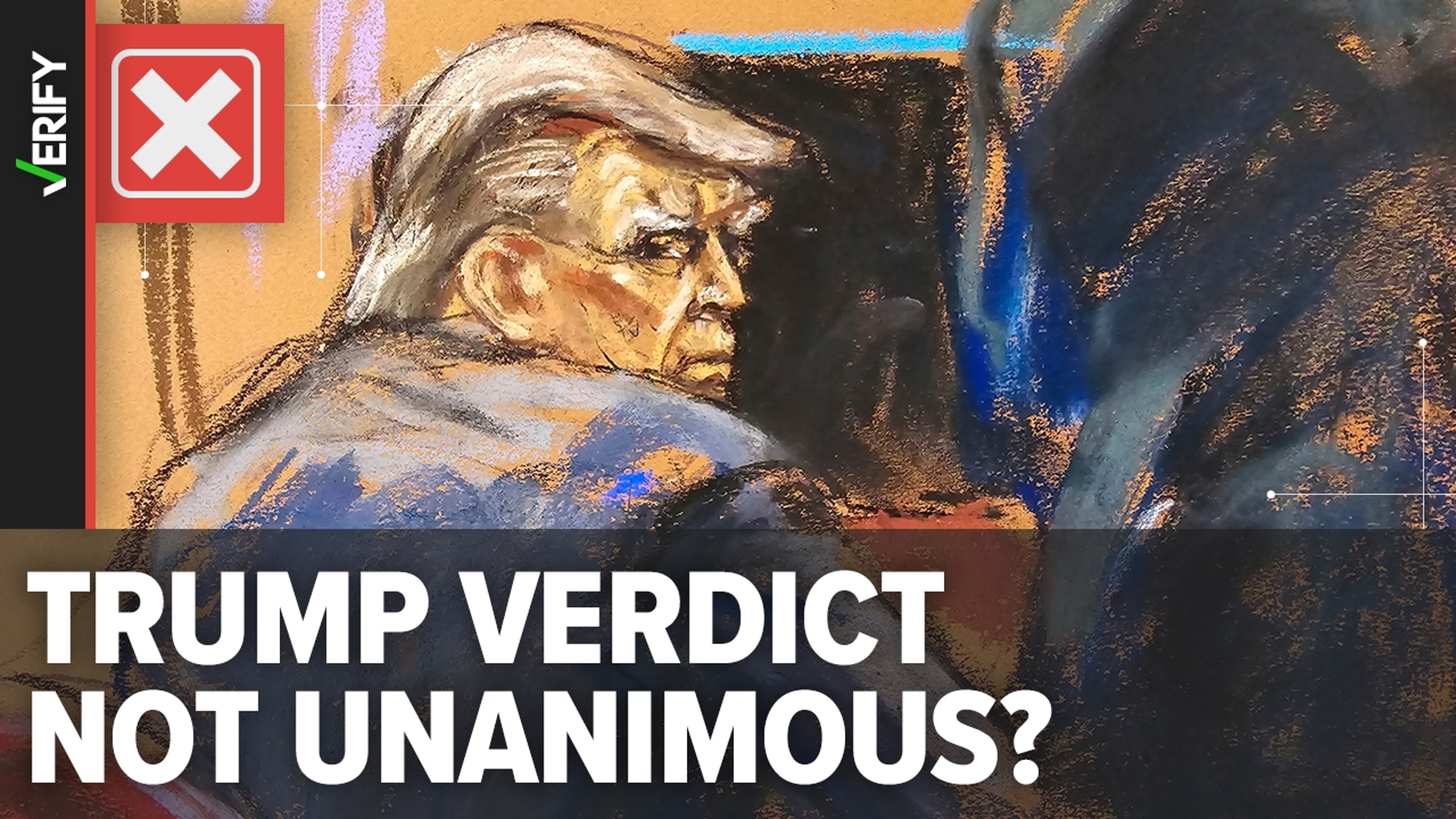On May 30, a jury in New York found former President Donald Trump guilty on all 34 charges of falsifying business records. He is scheduled to be sentenced on July 11.
After the conviction, people on social media claimed the jury was not unanimous and his conviction should be invalid.
In a statement on X, Sen. Tommy Tuberville (R-Ala.) said there was a “lack of a unanimous verdict required for conviction.”
Sen. Marco Rubio (R-Fla.) wrote, “Judge in Trump case in NYC just told jury they don’t have to unanimously agree on which crime was committed as long as they all at least pick one. And that among the crimes the [sic] can pick from are ones Trump WASN’T EVEN CHARGED WITH!!!”
THE QUESTION
Is it true the Trump verdict was not unanimous?
THE SOURCES
- Michael Bloch, partner with New York-based law firm Bloch & White
- Sixth Amendment jury unanimity requirement
THE ANSWER
No, it’s not true the verdict in Trump’s New York case wasn’t unanimous.
WHAT WE FOUND
In the United States, a unanimous verdict is required in all criminal cases. In former President Donald Trump’s criminal case, the jury was unanimous, finding him guilty on all 34 counts of falsifying business records.
Michael Bloch, a partner with New York-based law firm Bloch & White, told VERIFY the “jury was absolutely unanimous.”
“It is entirely misleading to claim that the jury was not unanimous in its verdict. In order to convict Trump of each of the 34 felonies that the jury needed to find, beyond a reasonable doubt unanimously, that he falsified business records with the intent to conceal another crime; the jury found those elements unanimously,” Bloch said.
The claims from Republicans appear to stem from a misinterpretation of an instruction the judge gave to the jurors.
In New York, falsifying business records is only a felony if it’s done as part of another crime.
Prosecutors said that crime was, essentially, election interference. To be considered election interference, Trump’s actions had to meet one of a few different criteria.
Judge Juan Merchan gave the jurors three possible “unlawful means” that they can apply to Trump’s charges: falsifying other business records, breaking the Federal Election Campaign Act or submitting false information on a tax return.
For a conviction, each juror would have to find that at least one of those three things happened, but they don’t have to agree unanimously on which it was.
“It is well settled in the law that there are various ways in which somebody could commit a crime,” Bloch said. “A jury does not need to be unanimous as to the ways somebody committed the crime, as long as they are unanimous that he had the intent to commit that crime.”
In other words, Bloch said, “if somebody breaks and enters into a home, and six people on a jury think that that person did so with the intent to steal money, and the other half of the jury thinks that that person did so with the intent to commit an assault inside the building, that person is still guilty of burglary, and the jury has unanimously concluded that that person committed each of the elements of burglary, even though the jury may differ as to the intent of the specific crime that that person intended to commit inside the dwelling.”
The Associated Press contributed to this report.

